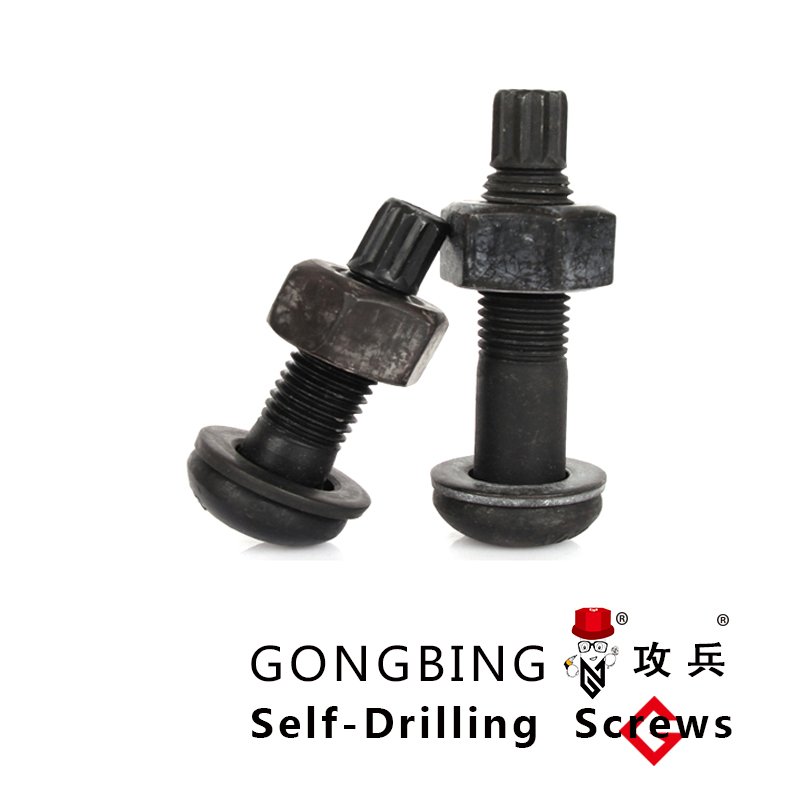Self-Drilling Screws for Metal Applications in 1-4 Steel Structures
Self-Drilling Screws for 1/4 Steel A Comprehensive Guide
In the world of construction and metalworking, the use of appropriate fasteners is crucial for ensuring the stability and integrity of structures. Self-drilling screws, also known as Tek screws, have emerged as one of the most efficient and reliable fastening solutions, particularly when it comes to drilling into metals such as 1/4 inch steel. This article explores the benefits, applications, and specifications of self-drilling screws for 1/4 steel.
What Are Self-Drilling Screws?
Self-drilling screws are specialized fasteners equipped with a drill bit tip that allows them to drill through metal without the need for pre-drilled holes. This feature not only saves time but also reduces the need for additional materials and tools, making them a popular choice among professionals and DIY enthusiasts alike. The sharp, hardened points of these screws can penetrate various substrates, promoting a secure hold that is essential for structural applications.
Advantages of Using Self-Drilling Screws
1. Time Efficiency One of the most significant advantages of self-drilling screws is their ability to eliminate the pre-drilling process. This is particularly beneficial in large-scale projects where time is of the essence. By combining the functions of drilling and fastening into one process, workers can significantly decrease labor costs and project timelines.
2. Versatility Self-drilling screws can be used with a range of materials, including different types of steel, wood, and plastics. However, they are specifically designed to handle metals, making them ideal for applications involving 1/4 inch steel, which is common in structural and framework applications.
3. Strong and Secure Connection When properly installed, self-drilling screws create a tight, secure fit. Their unique design allows them to form threads within the material they penetrate, ensuring a robust bond that is resistant to loosening and fatigue over time.
4. Reduced Risk of Corrosion Many self-drilling screws are coated with protective materials that enhance their resistance to rust and corrosion. For projects involving exterior applications or environments with high humidity, these screws provide an added layer of durability.
Applications of Self-Drilling Screws for Steel
Self-drilling screws for 1/4 inch steel are widely used in various construction and manufacturing applications
. They are commonly employed inself drilling screws for 1 4 steel

- Metal Framing A critical element in commercial construction, metal framing relies on self-drilling screws for attaching steel studs and tracks efficiently. - HVAC Installations In heating, ventilation, and air conditioning systems, self-drilling screws are used to secure metal ducts and components, allowing for a fast and reliable setup.
- Roofing These screws are instrumental in roofing applications, particularly for attaching metal roofing sheets and installations. Their ability to penetrate thick steel ensures an airtight and weather-resistant finish.
- Automotive Industry In vehicle manufacturing and repair, self-drilling screws are often utilized for assembling parts and components, due to their reliable fastening capabilities.
Choosing the Right Self-Drilling Screw
When selecting self-drilling screws for 1/4 steel, several factors should be considered
- Screw Gauge and Length It is crucial to choose the correct gauge and length of the screw to ensure it penetrates the steel effectively without over or under-penetration.
- Drill Point Type Different types of drill points (e.g., pointed, blunt, or nibbed) may be more suitable depending on the specific application and thickness of the steel being fastened.
- Coating and Material Choose screws made from high-strength steel with coatings like zinc or ceramic, which enhance corrosion resistance, especially for outdoor applications.
Conclusion
Self-drilling screws are a vital tool in modern construction, particularly when working with 1/4 inch steel. Their ease of use, compatibility with various materials, and robust hold make them an indispensable resource across multiple industries. By understanding their benefits and selecting the appropriate screws for each project, professionals can enhance their workflow and ensure durable, reliable results.
-
Weatherproof Plastic Expansion Anchors for OutdoorNewsJun.06,2025
-
Sustainability in the Supply Chain: Eco-Friendly TEK Screws ProductionNewsJun.06,2025
-
Load-Bearing Capacity of External Insulation FixingsNewsJun.06,2025
-
Double Head Bolts: Enhancing Efficiency in Industrial MachineryNewsJun.06,2025
-
Corrosion Resistance in Chipboard Screws: Coatings for Wholesale DurabilityNewsJun.06,2025
-
Butterfly Toggle Bolts : Enhancing Structural ResilienceNewsJun.06,2025
